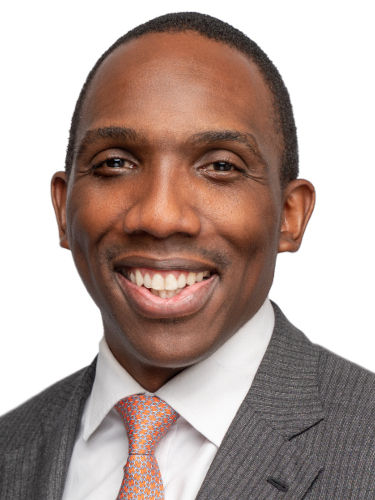Recruiting leaders for family offices is no easy task, and as the profile of these firms grows in Canada, demand for CEOs is high, says Amanda Bassin, president of Persuit Group, a Toronto-based executive search firm.
“Family office is the new thing—it’s sexy, it’s cool,” she says. “People say, ‘I want to get into a family office.’”

Many think of it as a cushy, niche role with a lot of compensation, she says, but they don’t necessarily understand the nature of the job. A few of the challenges in recuiting for these positions are the intricate matching of a candidate’s skills to a family’s unique needs, the lack of online visibility of job postings and compensation issues.
“Trying to find a leader who can align with your ethos, continue to maintain your discretion, your privacy, and involve building trust over the long term—that integration needs to be seamless,” says Andrew Mushore, Toronto-based director, executive search and interim management, with B. Riley Farber, a financial advisory firm.
He says Canada’s immature family office environment is evolving—and along with it has come less privacy and confidentiality regarding hiring. “We’re getting there,” he says.
Most issues with hiring revolve around cultural fit, he says. Many families are accustomed to their family members’ ways of doing business, and external candidates must be able to speak the family’s language and show they’re willing to adapt to whatever the family is looking for. Failing to do so can lead to conflicts later.
“That clash of egos can sometimes be an issue,” says Mushore.
Special requirements
In addition to personality mismatches, a number of other issues can complicate the hiring of a family office leader:
The need for a unique skillset: Bassin says candidates need to have a mix of technical skills and the ability to execute tasks, often without direct supervision. They also have to be able to pivot when a family’s needs change, perhaps shifting quickly from philanthropic giving to succession planning.
“Sometimes candidates from the corporate side, especially if they’re coming from a big, structured environment, struggle with the expectations to wear multiple hats,” she says.
Mushore says, “You can be overseeing investment management on one occasion, then handling a real estate project and then dealing with a personal family member request or resolving a dispute. It can be anything—and everything.”

The layers of privacy: When it comes to job descriptions, due to the highly sensitive and private nature of family offices, it can be challenging to find adequate information about a specific role, says Mushore.
Many families are “a lot more discreet when there’s a job opening,” he says. When he’s sourcing candidates he often isn’t allowed to mention the family’s name until a non-disclosure agreement is signed. “A lot of people don’t even know that the opportunities exist, so it can actually make it quite difficult to find the right people, if you’re not working with a specialized recruiter,” says Mushore.
A family’s changing needs: Families can find it challenging to articulate their priorities, says Bassin. Plus, these needs can change over time, for example if the matriarch and patriarch become ill or the family wants to set up a foundation.
“What makes it even more complicated is that different generations can have different priorities,” she says. “One family member might say, ‘Okay, I want growth,’ while the other might prioritize legacy.”
The need for soft skills: Having a storied career at a large pension fund or investment firm doesn’t guarantee a successful hire, says Bassin. You need “somebody who’s a high-level thinker but can roll up their sleeves.” Based on conversations with the family, she often looks for candidates who possess such qualities as discretion, humility or loyalty.
The right leader sees beyond returns and into the DNA of the family itself.
Amanda Bassin, Persuit Group
Mushore agrees. He conducts many conversations with candidates to determine their suitability. “Do they have the ego, the EQ [emotional intelligence], the humility, the conflict resolution? Because managing those interpersonal relationships within the family office can be complex.”
Positions don’t always go vacant: Renee Neri, partner and head of Global Family Offices for Heidrick and Struggles in New York, says, “A factor related to the volume of candidate populations is that Canada, naturally, has a slightly smaller population of family office talent locally [relative to the U.S. or Europe], and that talent oftentimes is quite loyal to the families that they serve,” often in long-tenured roles.
Compensation can be an issue: Canadian CEOs are being compensated better today and more in line with what’s happening at U.S. family offices, says Mushore.“What we are seeing is better pay.” And there’s been a realization among families that if they want to secure a high-profile candidate from a private equity firm or from a structured corporate environment, “they are going to have to pay.”
But compensation can vary dramatically, says Bassin. In addition to actual pay, many candidates negotiate flexible schedules and rules regarding their availability and access.
Ultimately, she says, many would-be CEOs choose a family they feel they can connect with.
“The right leader sees beyond returns and into the DNA of the family itself,” says Bassin. “That kind of fit isn’t found in resumes; it’s found through the right lens and a search strategy that knows where to look.”
The Canadian Family Offices newsletter comes out on Sundays and Wednesdays. If you are interested in stories about Canadian enterprising families, family offices and the professionals who work with them, but like your content aggregated, you can sign up for our free newsletter here.
Please visit here to see information about our standards of journalistic excellence.



